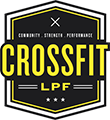Macronutrients are the categories that foods are placed into based on how the calories they contain are utilized once digested. The three macros are proteins, carbohydrates, and fats. All foods contain certain amounts of each, and their proportions are what determine whether something is considered “high fat” or “low carb.”
- Proteins – made of amino acids, which are commonly referred to as “the building blocks of the body,” protein mainly helps construct our tissues, muscles, and organs, and occasionally assists in fueling them. Without enough protein, we might experience physical weakness and discomfort, trouble concentrating, and mood changes.
- Good Sources: beans, nuts, meats, lentils, eggs, yogurt, fish
- Best Time To Eat: try to get protein in all meals throughout the day, as well as within 30-45 minutes after completing a workout.
- Carbohydrates – the gas to power your machine, carbs fuel both the mind and body, particularly during high intensity exercise. The most basic form of a carb is a simple carbohydrate, known as a monosaccharide. The types of carbs you want to focus on eating are complex carbohydrates, known as polysaccharides, as these release simple carbohydrates as sugar into the bloodstream slowly to boost energy levels and keep you feeling fuller longer.
- Good Sources: all vegetables, brown rice, oats, quinoa, millet, beans/legumes, bananas, berries, sweet potato
- Best Time To Eat: eat fiber-rich carbs throughout the day, and concentrate starchier carbs around post-exercise periods.
- Fats – of the three macronutrients, fats provide the highest amount of energy per gram. They also serve as insulators and protectors of the body’s organs, and allow us to adequately process certain vitamins. The majority of your fat intake should come from mono- and poly-unsaturated fats (the remainder from saturated fats), which regulate metabolism, improve blood flow, and increase cell development.
- Good Sources: nuts, seeds, avocados, olives, coconut, coldwater fish
- Best Time To Eat: since fats are the most energy dense macro, aim for a healthy dose in the morning at breakfast time to energize you for the coming day. Limit fat intake during pre- and post-workout times, as these slow down digestion and can make it more difficult for your body to absorb the protein and carbs it needs during these times.
Everybody’s body produces a unique response to varying ratios of macronutrients. Consult our FREE Nutrition Guide or sign up for our 6 Week Nutrition Challenge for sample meal ideas and even more information about how to reach your specific fitness goals through diet! Below are some links to great websites featuring all kinds of good tasting recipes that are also good for you. Happy eating everyone!
minimalistbaker.com – simple yet delicious plant-based recipes that require 10 ingredients or less, 1 bowl, or max 30 minutes to prepare
bodybuilding.com – a variety of recipes that can be sorted by ingredients, calories, amounts of each macro, and/or time to prepare
pinterest.com– if you want more options than you know what to do with, search “macro friendly recipes” (or follow the hyperlink)!
Written by Hannah Stevens

